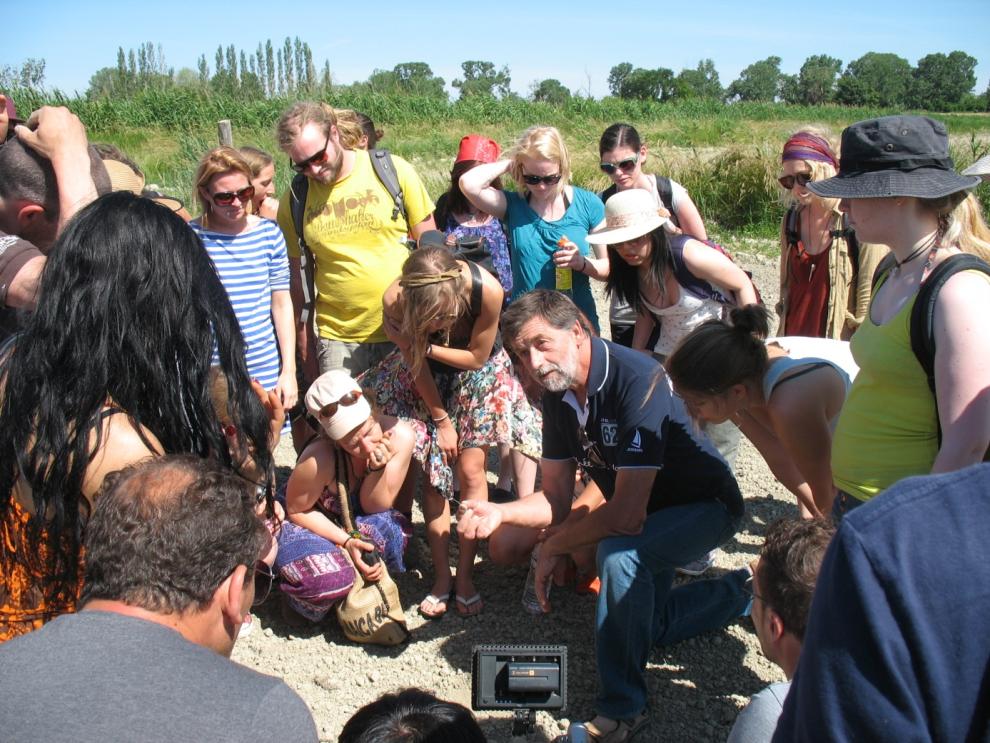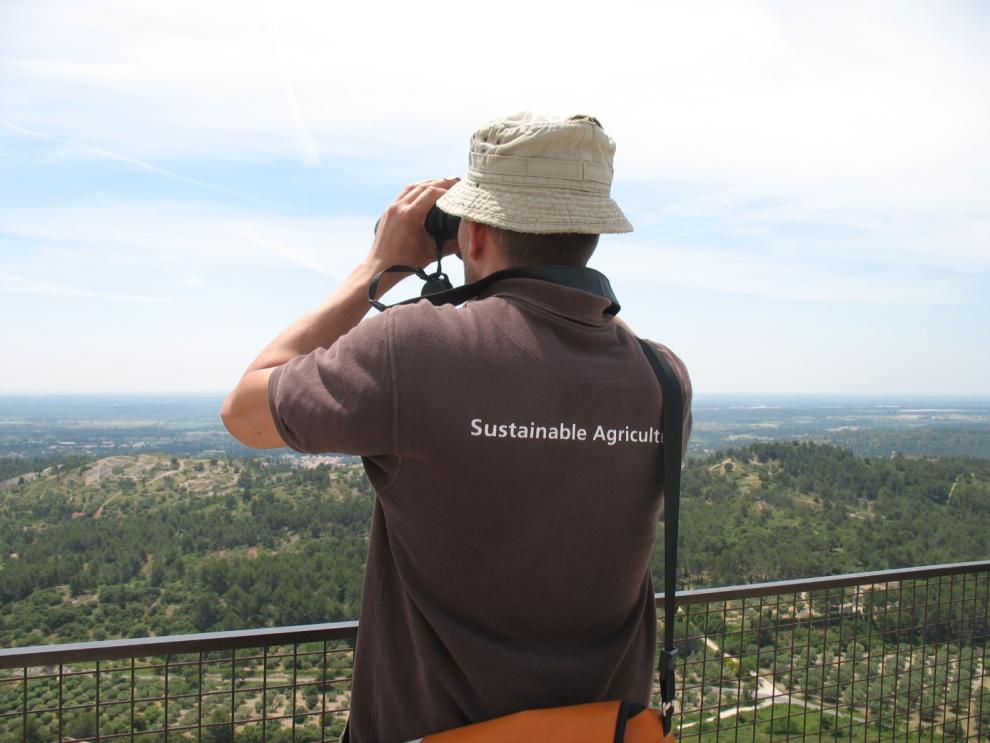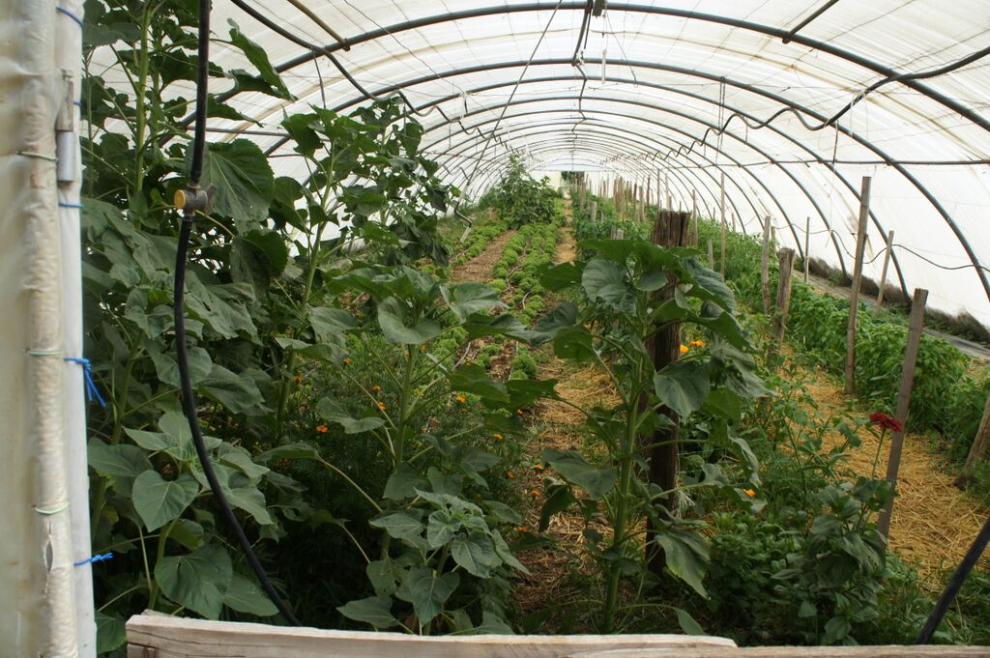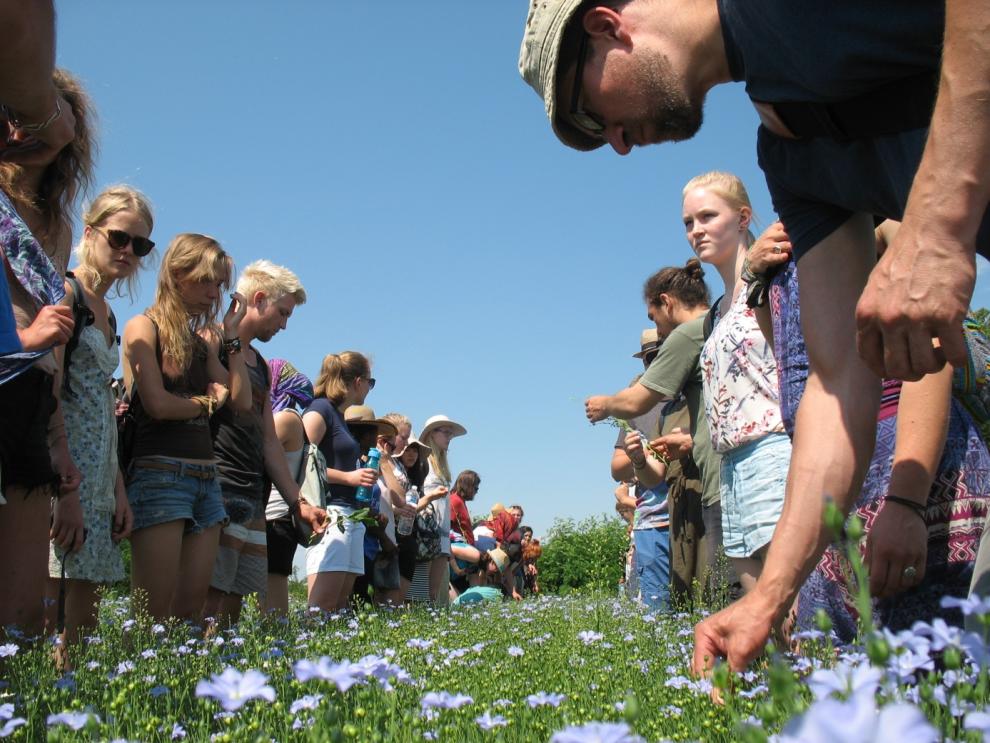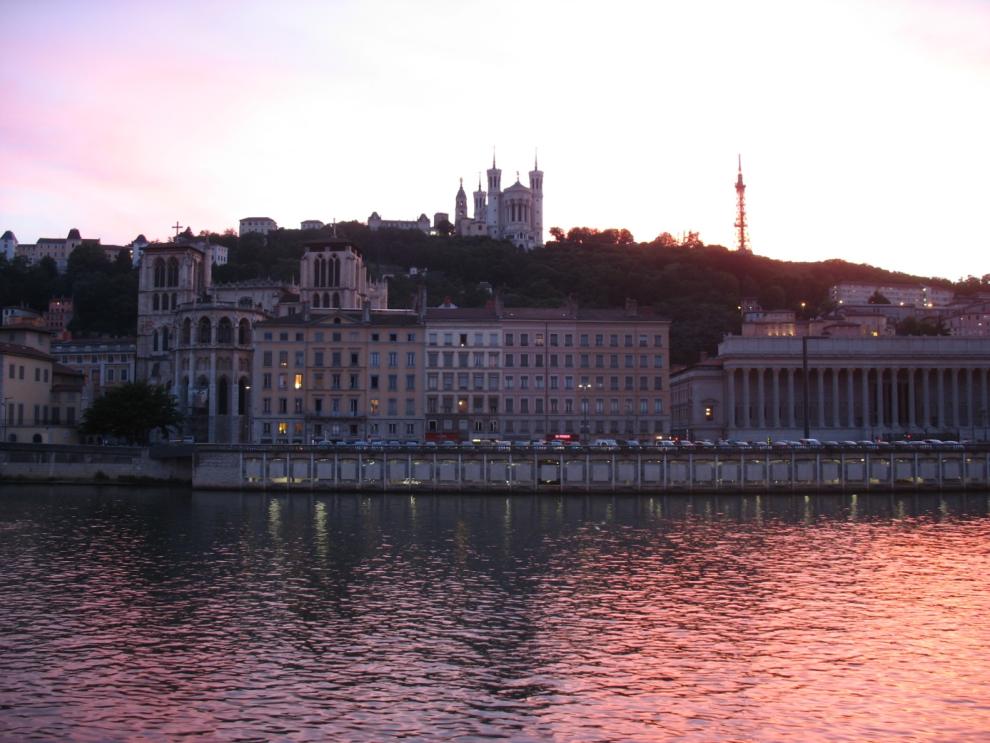Study trip to southern France
Discovering southern French culture, lifestyle and agriculture
Wheels of goat cheese, crusty loaves of steaming baguettes in the morning, and lavender represent only a taste of the 10 days that students of Rhine-Waal University of Applied Sciences recently spent in southern France. The goal of the study trip was to gain a better understanding of Mediterranean agriculture as well as southern French culture and lifestyle, and to observe first-hand the region’s ongoing agricultural practices.
On 29 May the group arrived at what would be home base for the majority of the trip, a quaint farmhouse on a small wine farm in Montfrin, a small village outside Avignon. It was flawless for the nightly cooking activities along with discussions about the daily adventures and learning experiences. Each morning after a delivery of fresh baguettes, the group would embark on the activities planned for that day, with every day consisting of a fully packed schedule designed to give them the best experience possible.
The Camargue
The first part of the trip focused on the Camargue region, located on the Rhone river delta, with highlights including Arles, a small and idyllic city. Students have had the opportunity of experiencing the local market. Fresh fruit and vegetables, herbs, olive oils, breads and flowers were filling the place with scents. Furthermore the trip continued with a visit to the French company Biosud, a major rice and cereal producer from the Camargue area. Next day students have been visiting Camargue Museum and the nature conservation trail.
“During the visit to the Camargue we have discovered a unique landscape in France with a great diversity of bird species and plants. Watching the pink flamingos after a walk through the conservation area was really special. We learned about different rice farming techniques in this region which also widened our agricultural understanding”, said Blanca Paschen, student of Sustainable Agriculture.
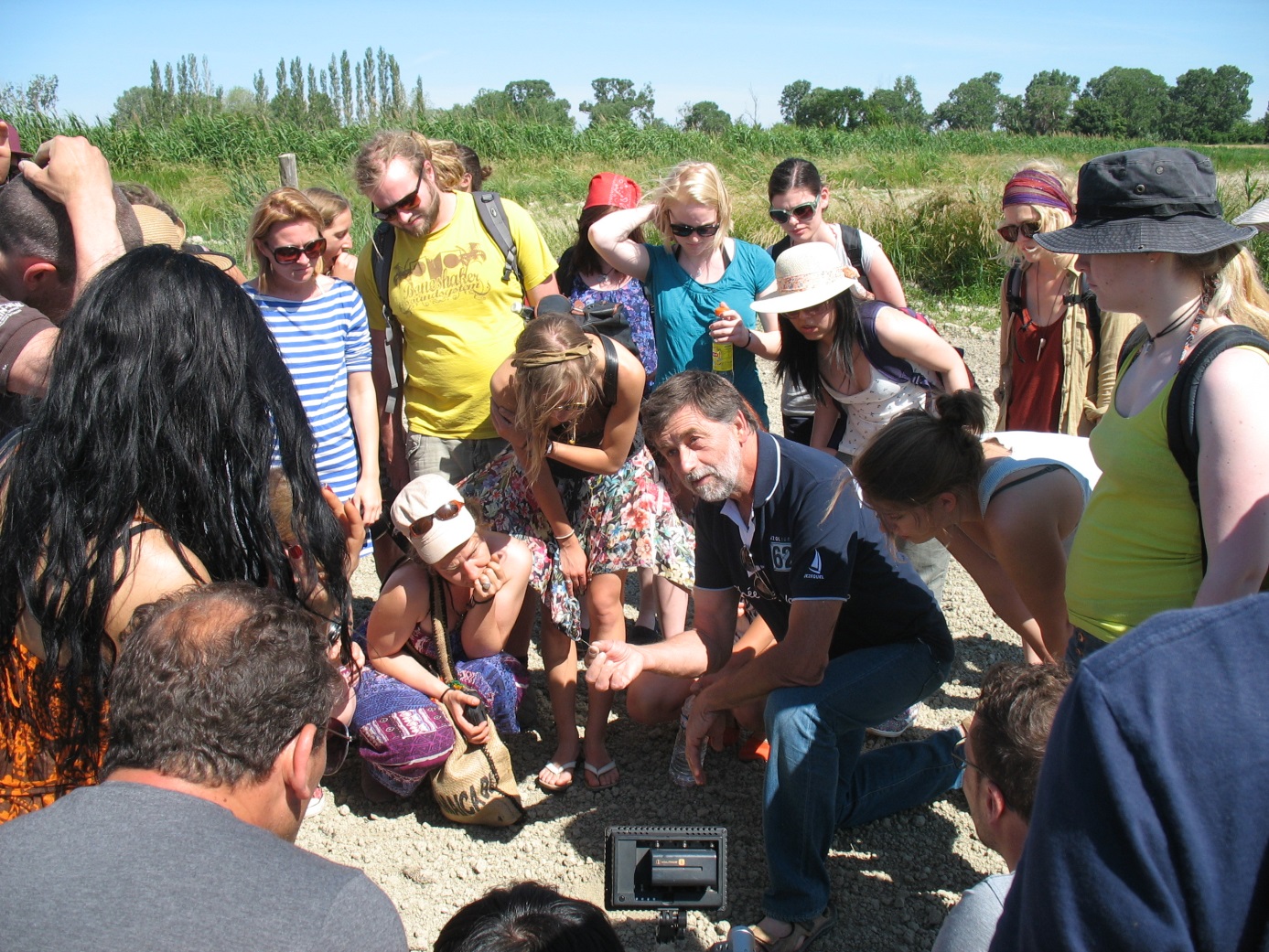 Mr. Bernard Poujol explaining the rice production process in the Camargue region
Mr. Bernard Poujol explaining the rice production process in the Camargue region
Provence
After exploration of the Camargue, the group travelled to Les Baux de Provence in order to explore an organic olive farm with onsite olive oil production as well as the ancient village, which is now a tourist destination of the area.
 Panoramic view of region around Les Baux de Provence
Panoramic view of region around Les Baux de Provence
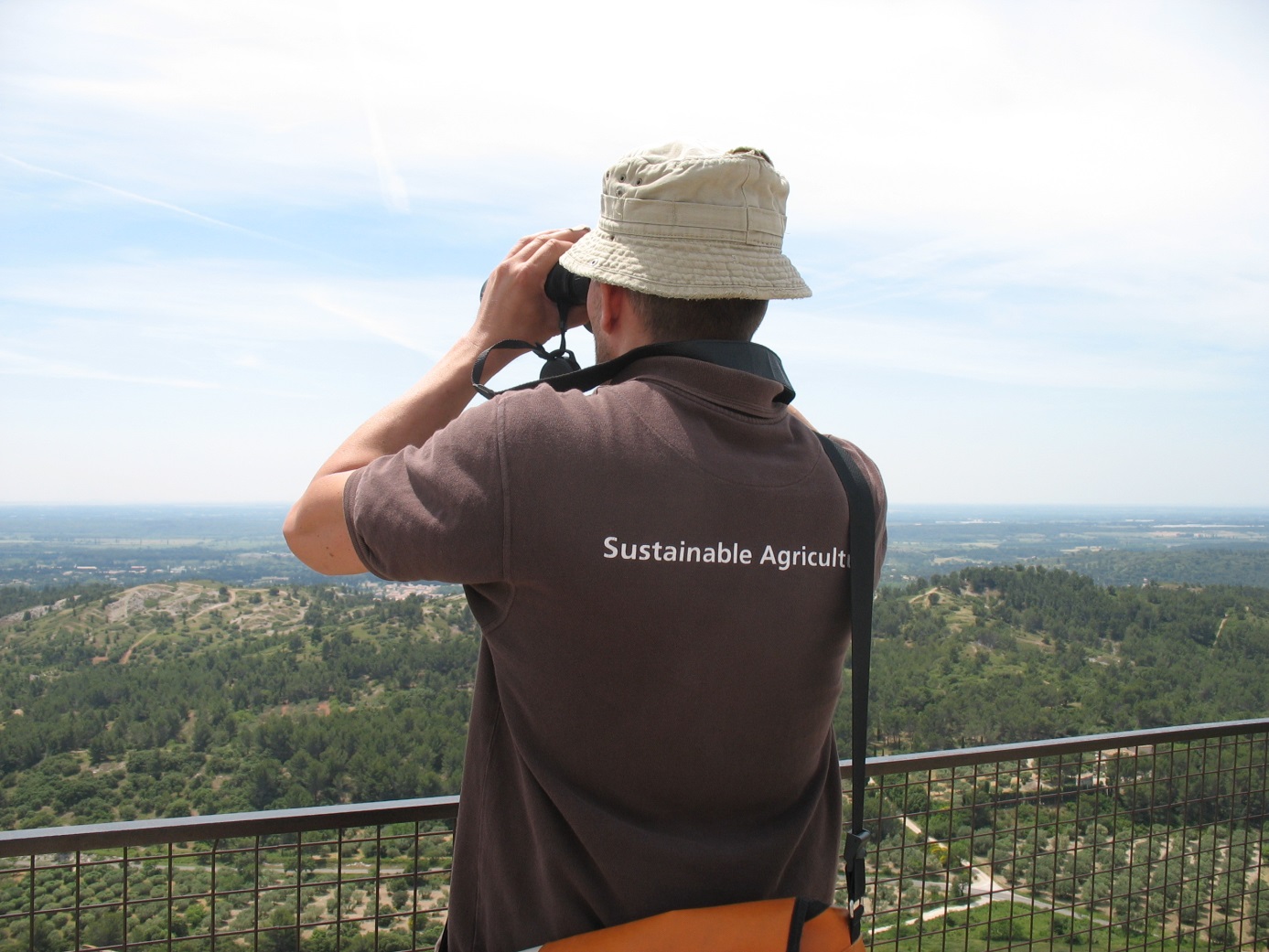 Prof Dr Florian Wichern exploring Les Baux de Provence
Prof Dr Florian Wichern exploring Les Baux de Provence
Mas de Granier and Montpelier
The tour continued to Saint-Martin-de-Crau and Mas de Granier, with the purpose of showing the students an example of sustainable and rural development. Longo Mai Cooperative was a great illustration of agricultural and horticultural practices in the region. According to Mischa Mussler, student of International Relations. “The Longo Mai Cooperative was really interesting because how they function in terms of sharing, living and working could be a fundamental base how future generations of humans could live in harmony on the planet Earth.”
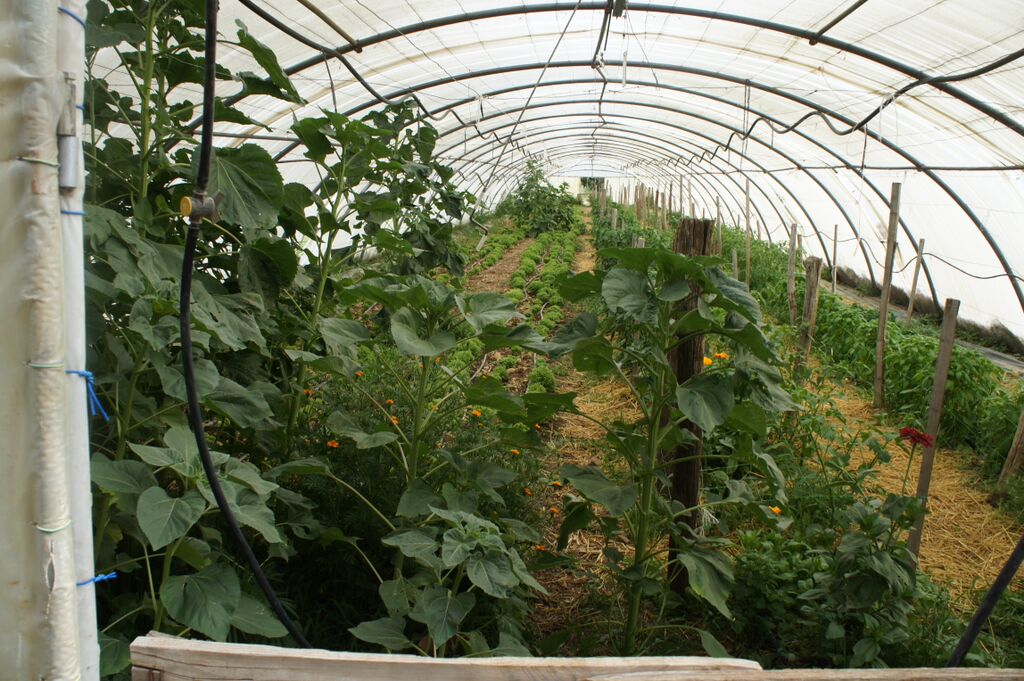 Greenhouse Longo Mai Cooperative, Mas de Granier
Greenhouse Longo Mai Cooperative, Mas de Granier
The journey continued to the city of Montpelier where the group met with Bioversity International in order to discuss various agricultural research projects with scientists working in the field of international agricultural research.
Lyon
The last days of the excursion were spent in Lyon, which is also home to a partner university of HSRW, the ISARA Institute. The students were given a chance to discover the ISARA Institute and explore the idea of an exchange program in Lyon. The ISARA Institute also organized a farm visit for the students in order to see organic farming practices as well as a tour of fish ponds in order to show land use in the region.
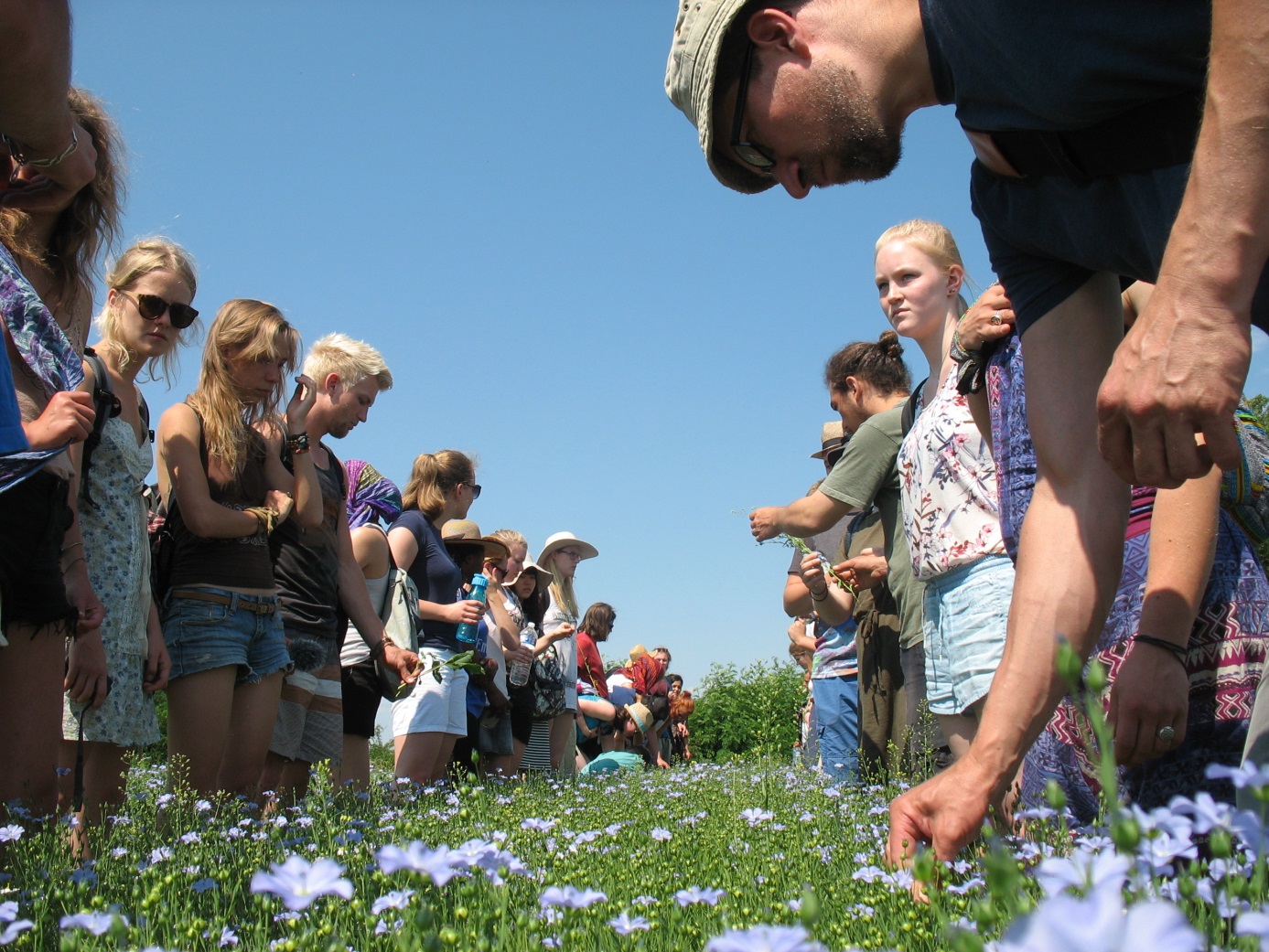 Bâgé‐la‐Ville
Bâgé‐la‐Ville
The group then spent the next two days in Lyon exploring the city and what it had to offer. Prof Dr Jens Gebauer mentioned that “at the local markets we have experienced diversity”. Moreover, C Sophie Radtke, Sustainable Agriculture student, added: “I found the markets in Lyon interesting because throughout the week we learned so much about where the products came from and how they are produced, it really gave me a new perspective.”
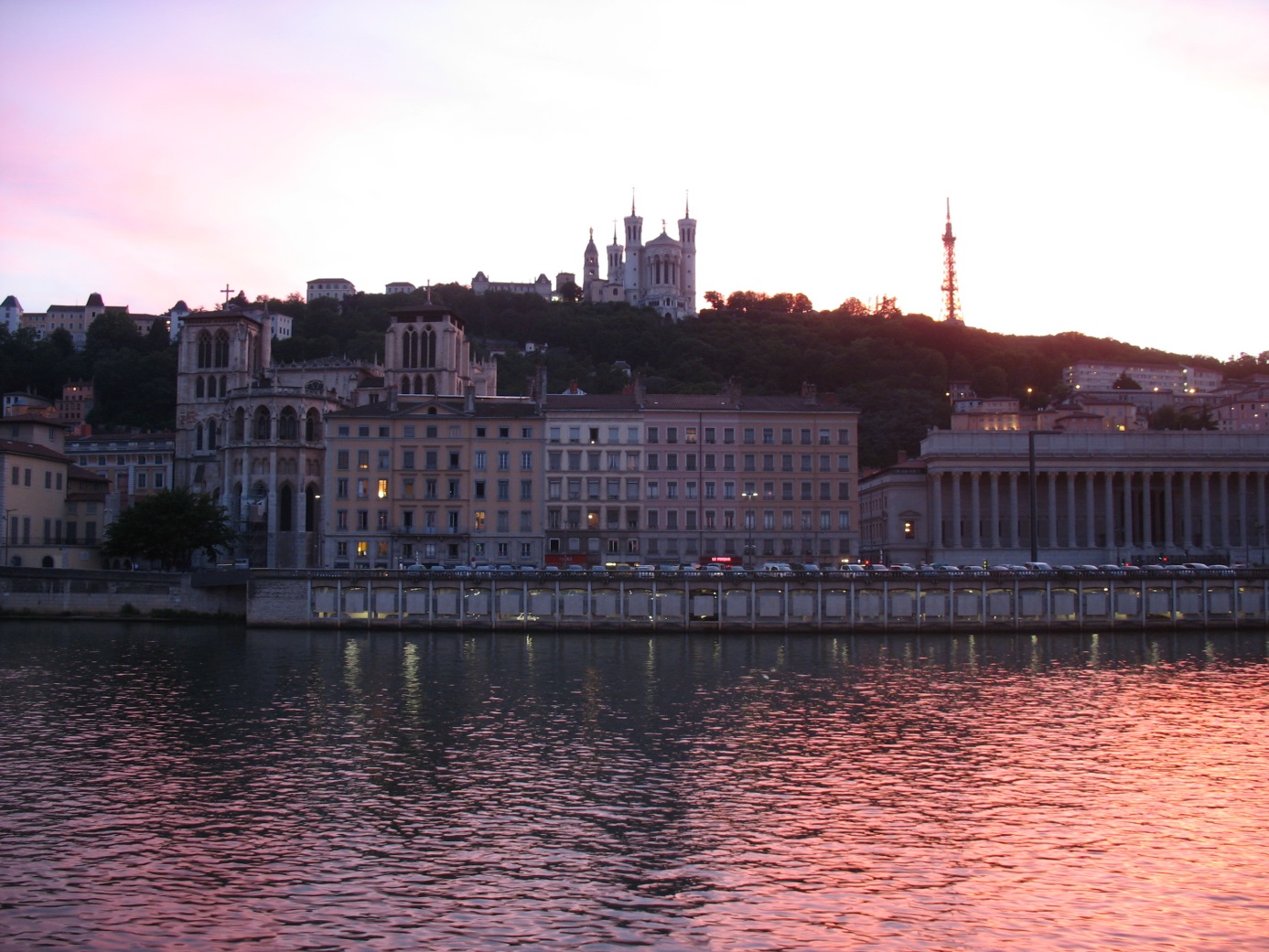 Evening landscape in Lyon
Evening landscape in Lyon
With Lyon being the last stop on the trip, the group made its way back home to Cleve to reflect on the experiences and learning outcomes from the last ten days.
“The excursion was a great opportunity to deepen our understanding of Mediterranean agriculture in Southern France. With all the experiences made and the pictures taken (on camera and in the mind’s eye), the learning can be called sustainable, as students will easily remember what they learned with all their senses. In the lectures to come, we will refer to these experiences”, said Prof Dr Wichern. “Thanks to support from the Faculty and from the Förderverein der Hochschule Rhein-Waal – Campus Cleve e.V., we were able to offer this excursion at relatively low costs, making it affordable also for students with a lower income. I am sure that we will continue the tradition of offering spring excursions.”
About the study trip
The students from the Sustainable Agriculture and Agribusiness programmes of the Faculty of Life Sciences were led by Dr Florian Wichern, Professor of Agricultural Sciences; Dr Dagmar Mithöfer, Professor of Agribusiness; Dr habil. Jens Gebauer, Professor of Sustainable Agricultural Production Systems with a special focus on Horticulture; and Raluca Zekić, a reasearcher at Rhine-Waal in the field of ecology.

